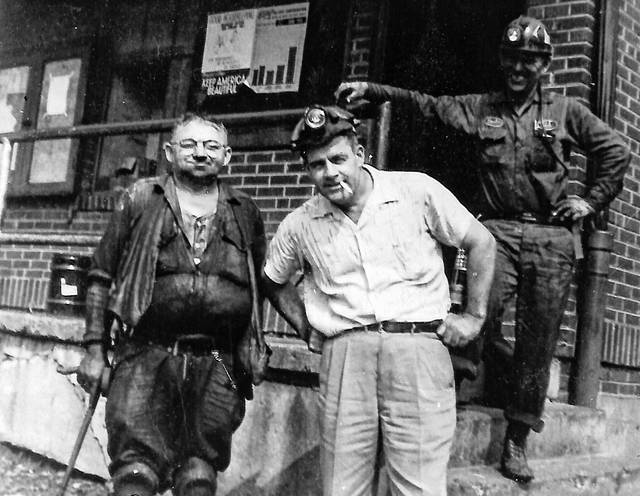

Ever been in a working coal mine? I’ve been in three, all in southeastern Kentucky: a mine where longwall mining was used, another that used conventional mining, and a third where the coal was so low I had to duck walk.
Why? Back in the day, when I was academic dean at what was then called Southeast Kentucky Community College, I needed to prove I could teach to be granted tenure in the University of Kentucky Community College System. I taught a writing course, but most of my students were majoring in mining, so I determined that they needed an overview of mining in the area.
When my parents were married, my father was a coal miner at United States Steel at Lynch, Ky., and was active in helping organize the United Mine Workers of America. Mining, however, was not his forte, so in the first 10 years of their marriage, he was on the hunt for other work — in Cincinnati, Louisville, and Charleston, Ind., with a stint in Bremerton, Wash., wiring LSTs during World War II.
He always returned to U.S. Steel, however, until mechanization required fewer workers, and he headed north where he found a steady job at the Mather Spring Company, one of the Toledo companies that supported the Detroit auto industry.
Labor Day is coming up, and that’s why I’m telling my readers a cautionary tale about my father’s work life. My father was highly intelligent, but his education was limited as his mother died when he, the youngest of four children, was 4 years old, and his father farmed out the children and went on to start another family.
Back to his post-U.S Steel work life. I still remember the weekend my father came home from Mather Spring carrying a portfolio, and he was clearly agitated. We soon learned that he had been offered a supervisory position at the company and had been given a weekend to make a decision.
As I’ve already indicated, he was smart, and he was also reliable, articulate and got along well with others, the very qualities companies want in management.
By Sunday night, he had made his decision: he would turn down the offer and continue his work as a dye setter..
I often wonder how his life — and ours — might have been different had there been a community college in Toledo at the time where men and women like him could have received short term/certificate training to capitalize on their abilities. He never spoke of that opportunity again, and he died at age 58 — two work weeks of being eligible for a company pension.
All four of my parents’ children have graduate degrees and have had responsible jobs where they were able to use their abilities: principal of Ohio State School for the Blind, director of an Eastern Kentucky Special Education Cooperative, teacher at Rossford City Schools and multi-millionaire, and me, a Ph.D. from The Ohio State University community college president/chancellor in some impressive colleges “from the coal mines of Kentucky to the California sun.”
The jobs my father had required little formal education, but our country is changing. Education beyond high school is critically important in terms of self-realization and other quality-of-life issues.
Since the 1960s, community colleges have sprung up around the country with a mission of providing access to educational opportunities as we say “from the cradle to the grave.” As I observe the little ones at the college where I teach and remember a student who went on a college trip abroad with us when she was 80, I think of all the ways in which community colleges are responding to our changing landscape: new curricula, flexible scheduling to accommodate the complex lives of students, transfer agreements, financial assistance.
In conclusion, on this Labor Day of 2020, I encourage my readers to scan the web pages of their area community colleges and locate programming that will meet their needs whether the need is for training, retraining, leisure learning, or “just because.”
I’m sharing this photo of my father taken on one of his many trips back to U.S. Steel in Lynch to see his buddies whom he knew when he worked as Johnny Cash sang “Deep in the Dungeon” of a coal mine. He’s the one in the white shirt, and Andy “Porkchop” Kopcho is the friend, standing to his right.



